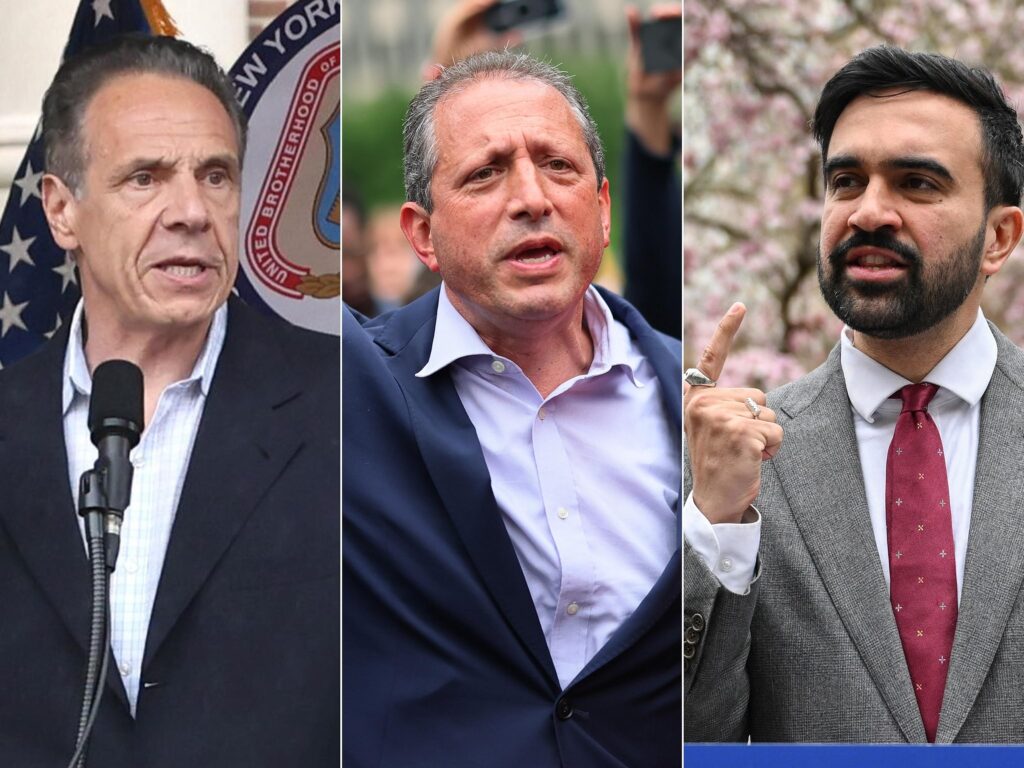NYC’s October Debates: A Crucial Platform for Mayoral and Citywide Candidates
As the general election draws near, New Yorkers are gearing up to witness a series of decisive debates this October featuring candidates competing for the mayoralty and other significant municipal roles. These debates serve as essential venues for voters to scrutinize the candidates’ visions, policy proposals, and leadership capabilities amid ongoing challenges such as public safety concerns, housing shortages, and economic revitalization efforts. By fostering transparency and accountability, these forums aim to illuminate the path forward for the city’s governance.
Intense October Debate Battles Shape NYC’s Political Landscape
With the election fast approaching, candidates for New York City’s top offices are intensifying their preparations for the upcoming October debates. These events are expected to be defining moments, as contenders articulate their plans to address the city’s multifaceted issues. From tackling crime rates to expanding affordable housing, each candidate’s approach will be under the microscope, potentially influencing undecided voters and altering the electoral dynamics.
Debate topics anticipated to dominate discussions include:
- Strategies for reducing crime and enhancing community policing
- Post-pandemic economic recovery initiatives
- Upgrades to transportation and infrastructure
- Policies promoting climate resilience and environmental sustainability
- Reforms in the education system
| Position | Number of Candidates | Scheduled Debate Date |
|---|---|---|
| Mayor | 5 | October 12 |
| Public Advocate | 3 | October 18 |
| City Comptroller | 4 | October 22 |
Critical Issues Shaping the NYC Mayoral and Citywide Debates
New York City faces a complex array of challenges that will be front and center during the debates. Affordable housing remains a crisis, with candidates expected to propose innovative zoning reforms, enhanced rent stabilization policies, and incentives to boost the construction of low-income housing units. Public safety is another pressing concern, especially as recent data from the NYPD indicates a slight uptick in certain crime categories. Candidates will likely debate the balance between increasing police funding and implementing community-based reforms to rebuild trust.
Additionally, climate change adaptation and economic recovery will be pivotal topics. With the city still recovering from the economic fallout of the COVID-19 pandemic, candidates are expected to emphasize green infrastructure projects to combat flooding and extreme weather, alongside initiatives to foster job growth in sustainable industries. Education reform, including curriculum modernization and expanded after-school programs, will also be a key focus to improve student outcomes and school safety.
| Policy Focus | Candidate Proposals | Expected Outcomes |
|---|---|---|
| Affordable Housing | Expanded subsidies, zoning adjustments | Increased housing availability, rent stabilization |
| Public Safety | Combination of enforcement and community reforms | Reduced crime rates, stronger community relations |
| Climate Resilience | Investment in green infrastructure | Enhanced protection against climate impacts |
| Economic Recovery | Support for small businesses, workforce development | Job creation, diversified economy |
| Education | Curriculum updates, after-school program expansion | Improved academic performance, safer learning environments |
How Voters Can Critically Engage with Debate Performances
To make the most of the debates, voters should approach them with a discerning mindset, focusing not only on the content but also on the delivery and consistency of candidates’ responses. Look for detailed, actionable plans rather than broad or vague statements. Observe how candidates respond to challenging questions—do they confront issues head-on or evade them? Taking notes during the debates can be invaluable for comparing candidates and conducting fact-checks afterward.
- Prioritize issues: Concentrate on topics that directly affect your neighborhood or interests.
- Observe non-verbal cues: Body language can reveal confidence and sincerity.
- Verify claims: Cross-check statements with reliable news outlets and official data.
- Participate online: Engage with candidates through social media or virtual town halls to deepen understanding.
Active involvement extends beyond watching the debates. Sharing your thoughts on social media using official debate hashtags, joining local discussion groups, or attending community forums can enrich public discourse and help uncover perspectives that might be missed when watching alone. This collective engagement empowers voters to make well-informed choices at the polls.
| Engagement Strategy | Purpose |
|---|---|
| Note-taking | Document key points and responses for later review |
| Fact-checking | Confirm accuracy of candidate statements |
| Community Dialogue | Exchange viewpoints in local forums |
| Digital Interaction | Engage candidates directly via social media |
Public Forums by Community Groups and Media Amplify Candidate Engagement
Throughout New York City, numerous community organizations and media outlets are hosting public forums that extend beyond traditional campaign events. These gatherings provide residents with direct access to candidates, ensuring that voices from all five boroughs are represented. From grassroots coalitions to neighborhood alliances, these forums promote open, transparent conversations on critical urban issues such as housing affordability and transit improvements.
Highlights of these forums include:
- Live Q&A sessions enabling residents to ask candidates questions in real time
- Multilingual support to engage NYC’s diverse population effectively
- Hybrid attendance options offering both virtual and in-person participation
| Host Organization | Forum Date | Borough |
|---|---|---|
| Brooklyn Civic Alliance | October 4 | Brooklyn |
| Queens Community Media | October 10 | Queens |
| Harlem Neighborhood Network | October 15 | Manhattan |
| Bronx Voter Engagement Group | October 18 | Bronx |
| Staten Island Public Forum | October 22 | Staten Island |
Conclusion: Preparing for an Informed Election
As New York City approaches the October general election, the upcoming debates and public forums offer invaluable opportunities for voters to engage directly with candidates for mayor and other key offices. These events will shed light on the candidates’ priorities and policy plans, equipping residents with the knowledge needed to cast informed ballots. With the city’s future hanging in the balance, the weeks leading up to Election Day promise to be a critical period of civic engagement and political discourse.













